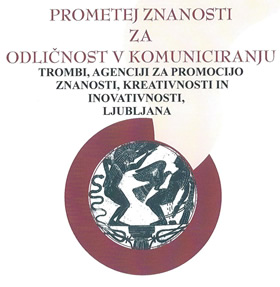Dr. Rok Kraševec: Ecological effects on antimicrobial resistance in bacteria
Nacionalni inštitut za biologijo gosti seminar z naslovom »Ecological effects on antimicrobial resistance in bacteria«, ki ga bo predstavil dr. Rok Krašovec (University of Manchester, Faculty of Life Sciences). Seminar bo v sredo, 28. avgusta 2019, ob 13. uri v Biološkem središču v Ljubljani.
Spontaneous mutation usually damages organisms’ offspring, yet mutation is also what enables cells to evolve, for instance, resistance to an antibiotic. As lead author I have demonstrated, using fluctuation assays, that mutation rate to antibiotic resistance decreases in dense populations, relative to sparse populations, by as much as 23-fold across bacteria. This ‘density-associated mutation rate plasticity’ (DAMP) can vary with the genotype of other organisms in the same environment and critically depends on MutT protein, a NUDIX hydrolase responsible for removing damaged nucleotides. We found DAMP also in 70 years of published literature, analysing resistance rates of 26 microbial species, suggesting that DAMP might be widespread. Our assays then showed that DAMP varies among organisms, for instance, Escherichia coli wild-type K-12 and B strains have DAMP, but another gamma proteobacterium, Pseudomonas aeruginosa PAO1, does not. When we estimated mutation rates across a panel of 62 E. coli strains, isolated from a wide range of natural environments (the ECOR collection), we observed variation in both average mutation rates and in the degree of DAMP. We also experimentally evolved (for ~600 generations) seven E. coli K-12 strains with different degrees of DAMP, including three constitutive mutator strains. We observed that, in evolved genotypes, the degree of DAMP did not change – DAMP is strikingly robust even in constitutive mutators, where evolved genomes contain many point mutations. My work is novel, demonstrating a strikingly close and nuanced relationship of de novo mutations with fundamental ecological factor, population density. I anticipate that DAMP affects the course of evolution more generally and understanding its causes and effects will enable us to better predict evolution of antimicrobial resistance in bacterial communities.
Seminar bo potekal v angleškem jeziku.
Foto: researchgate.net






